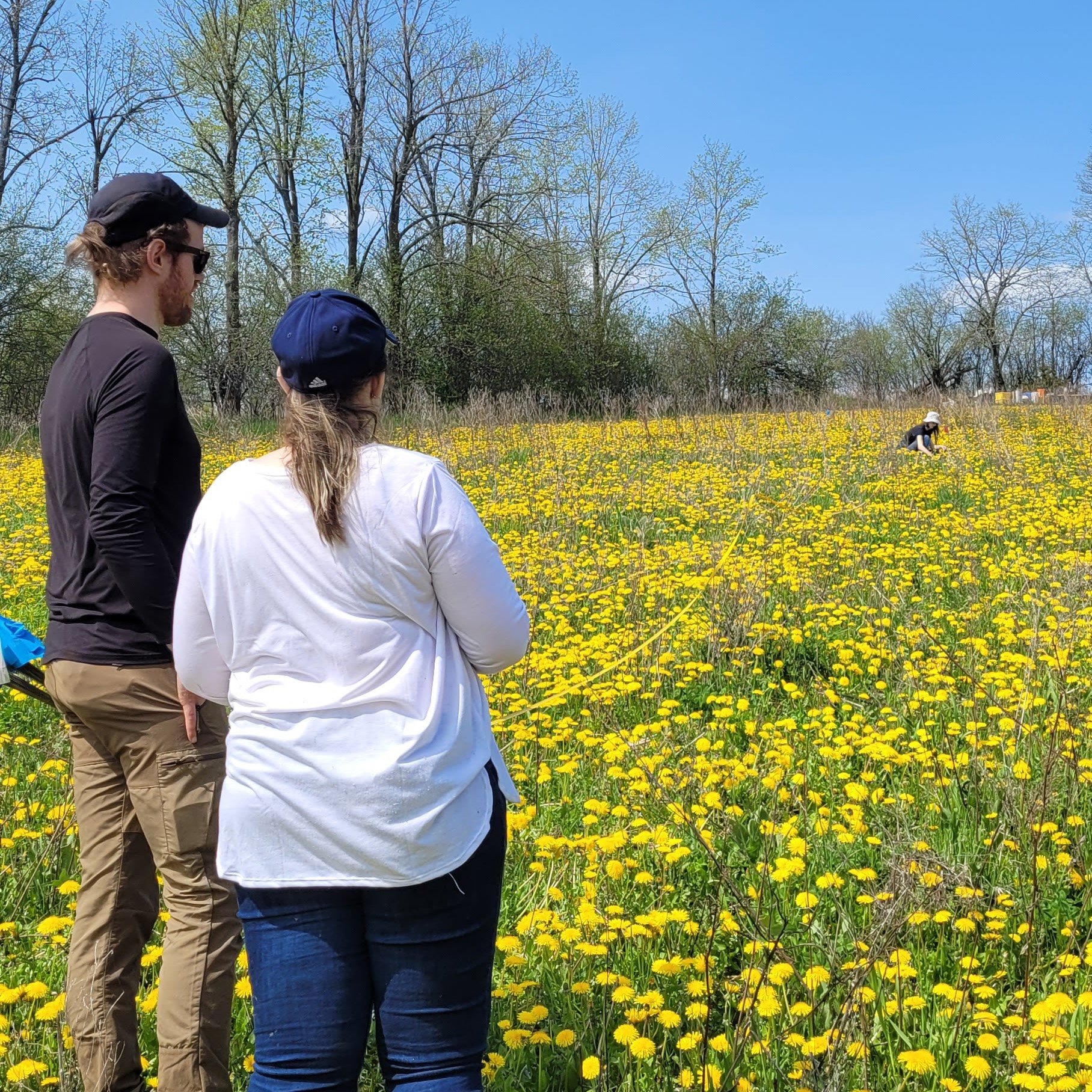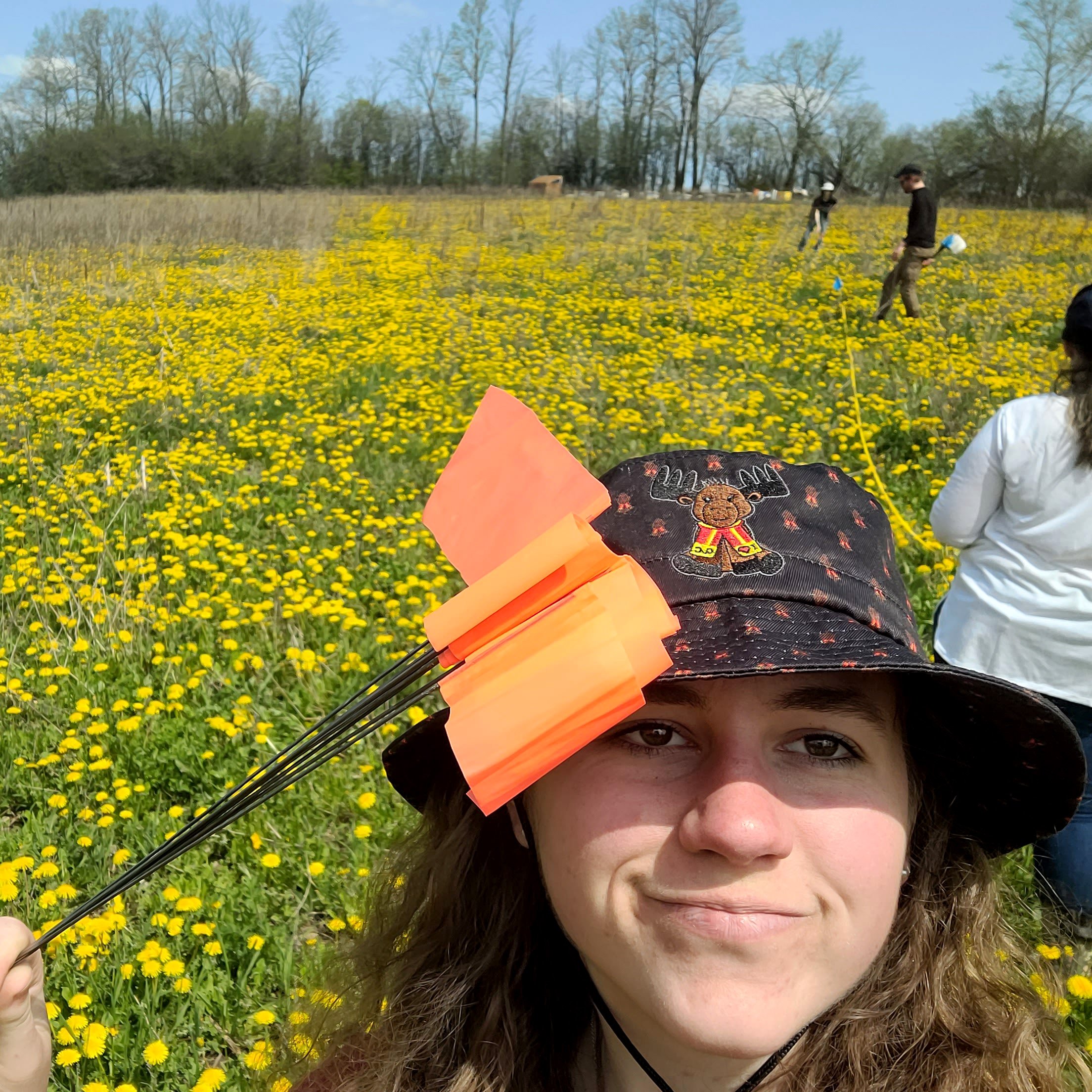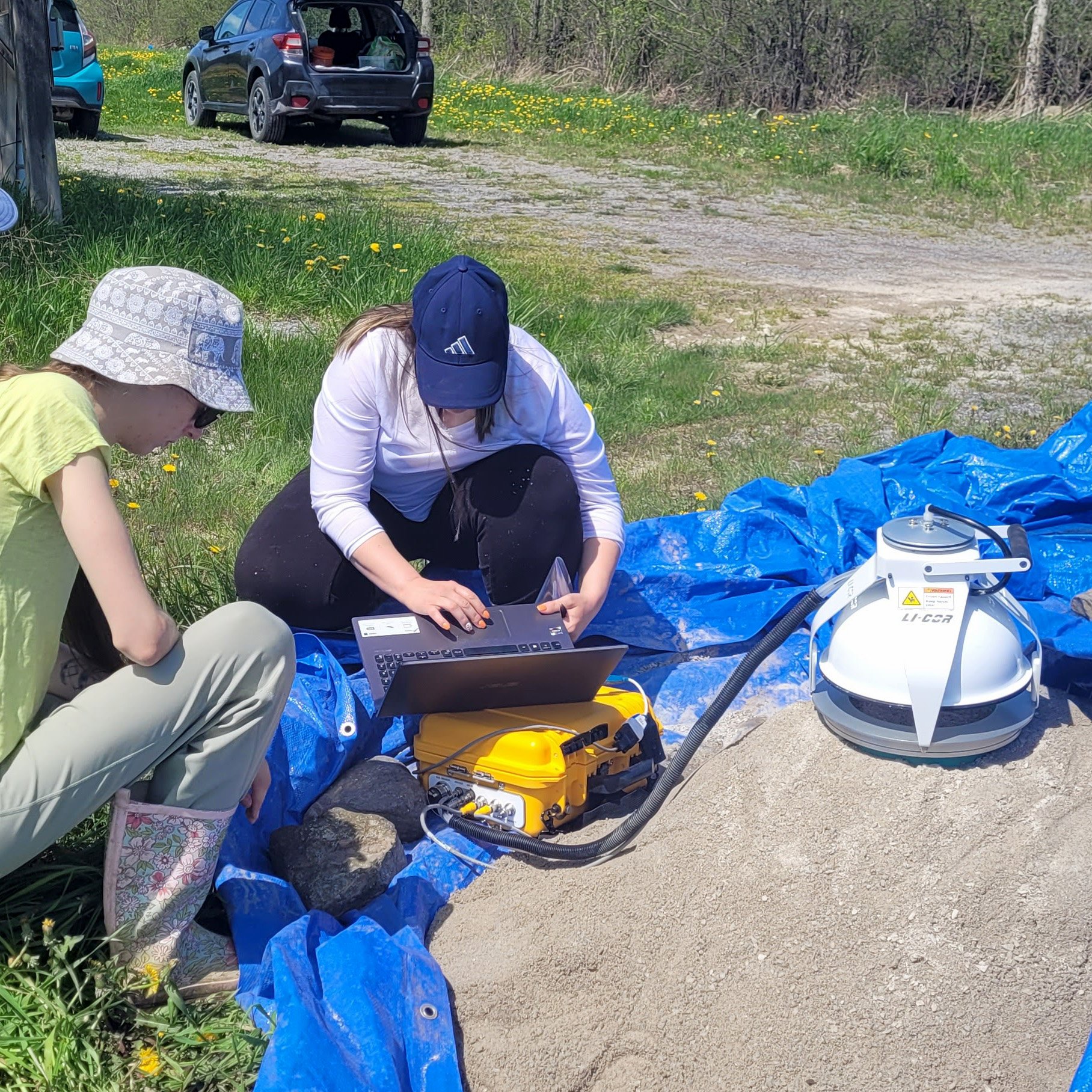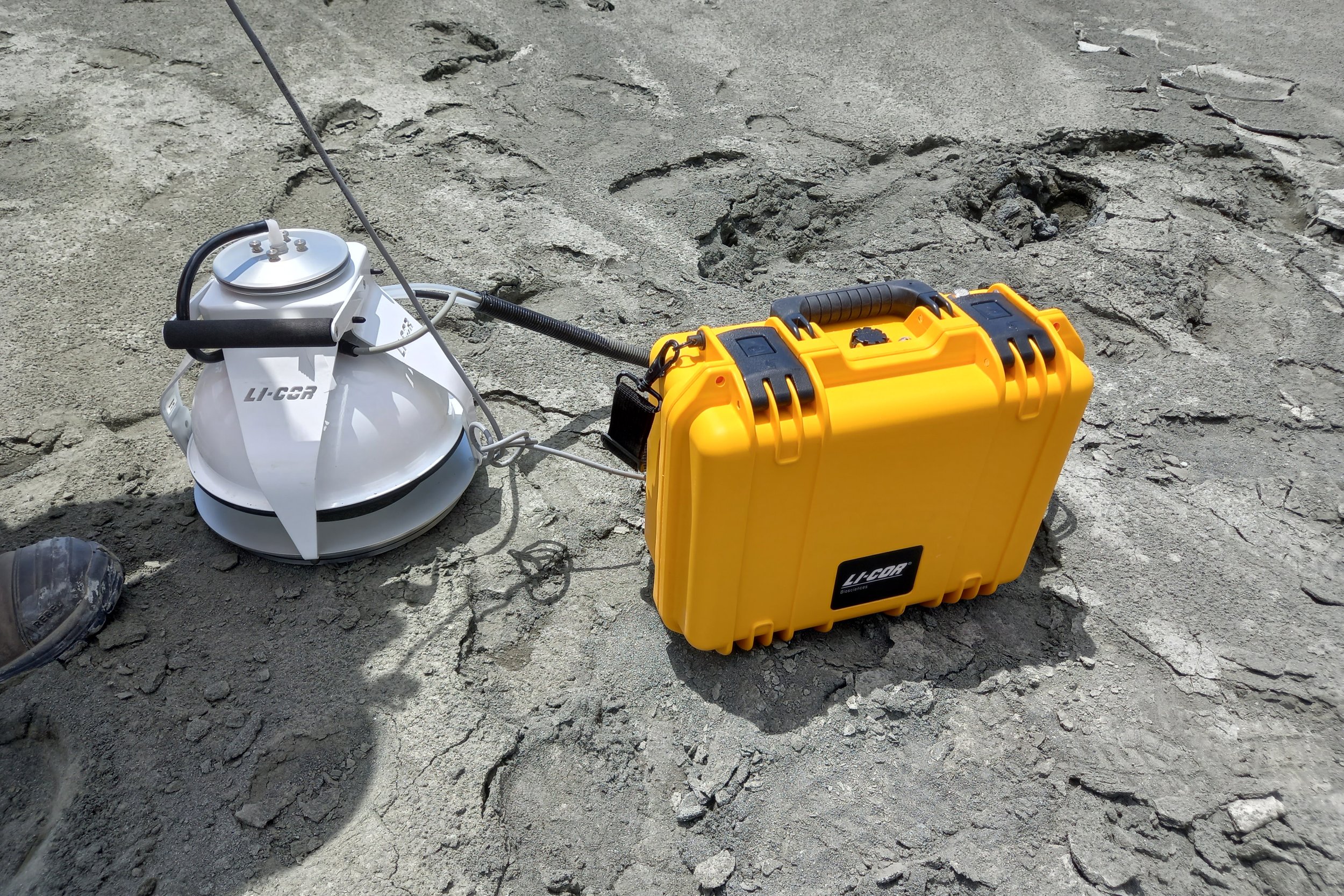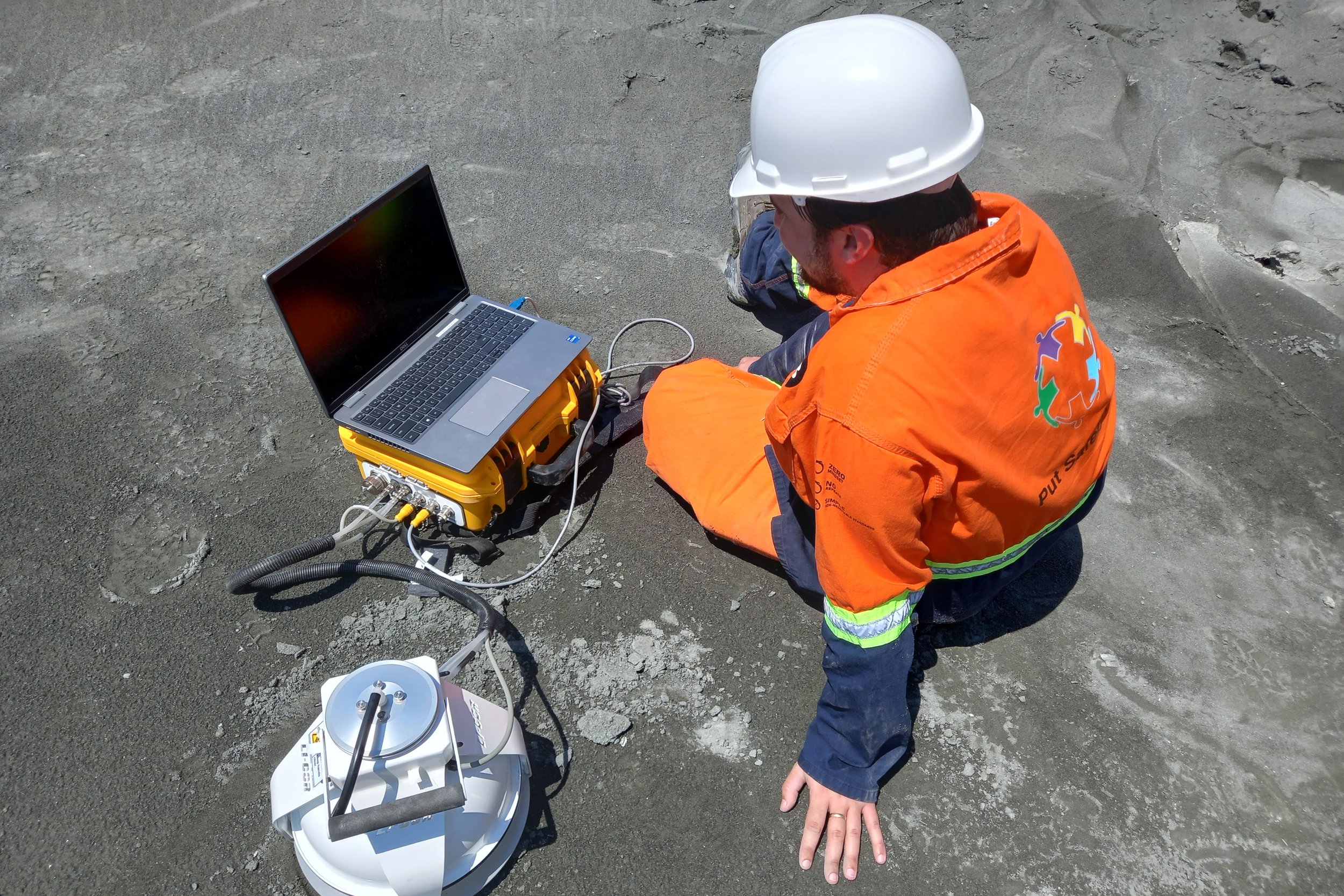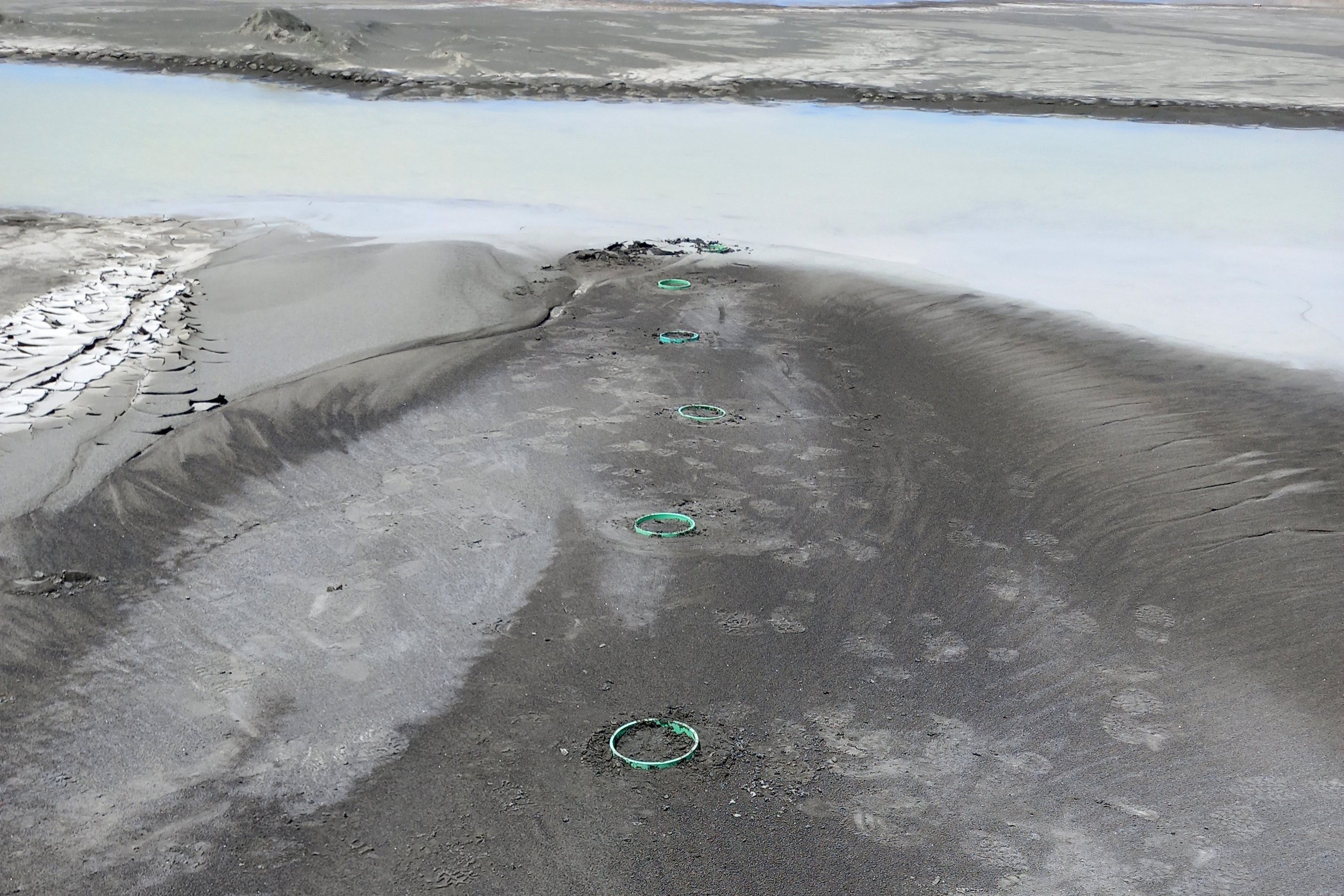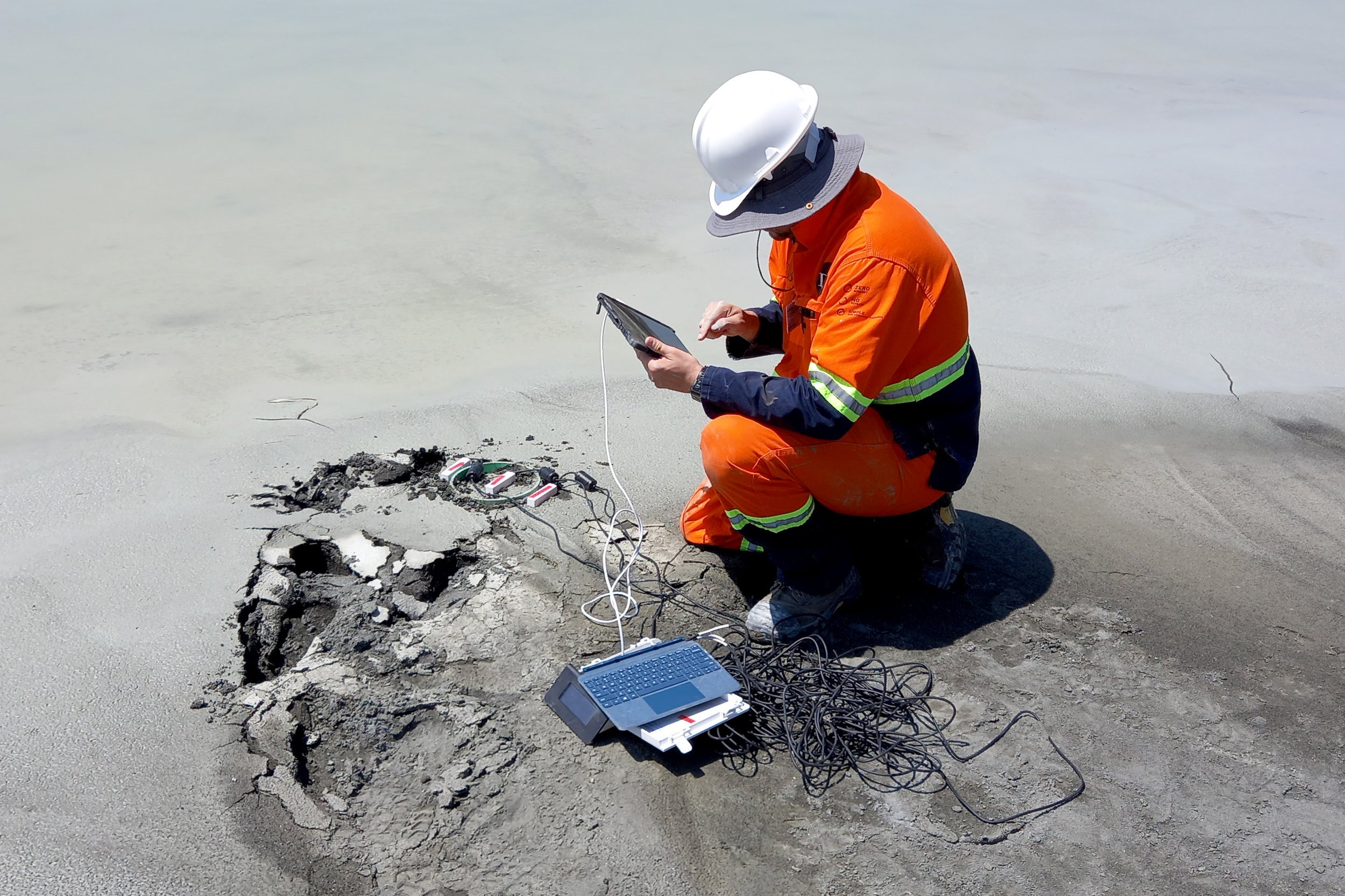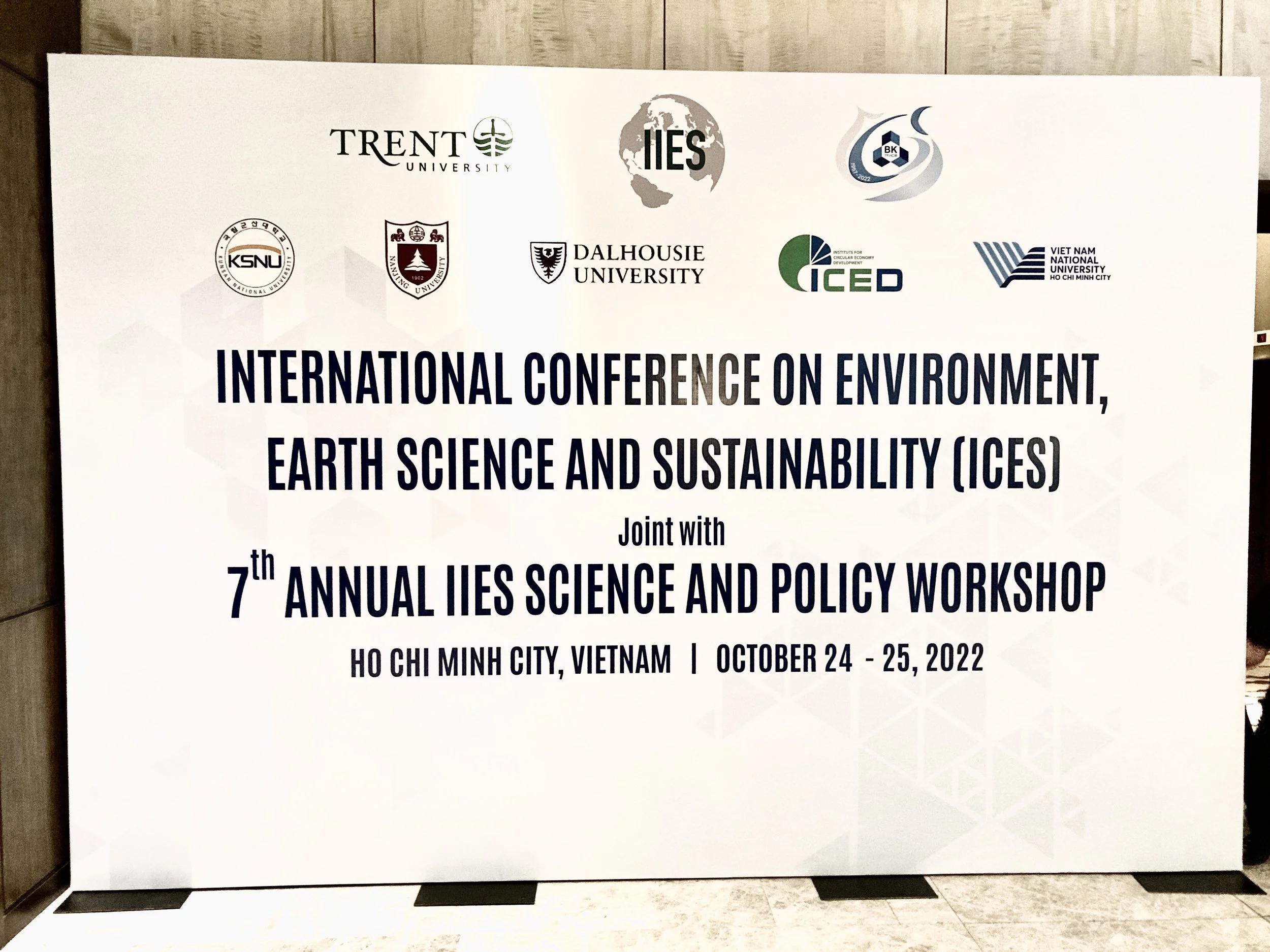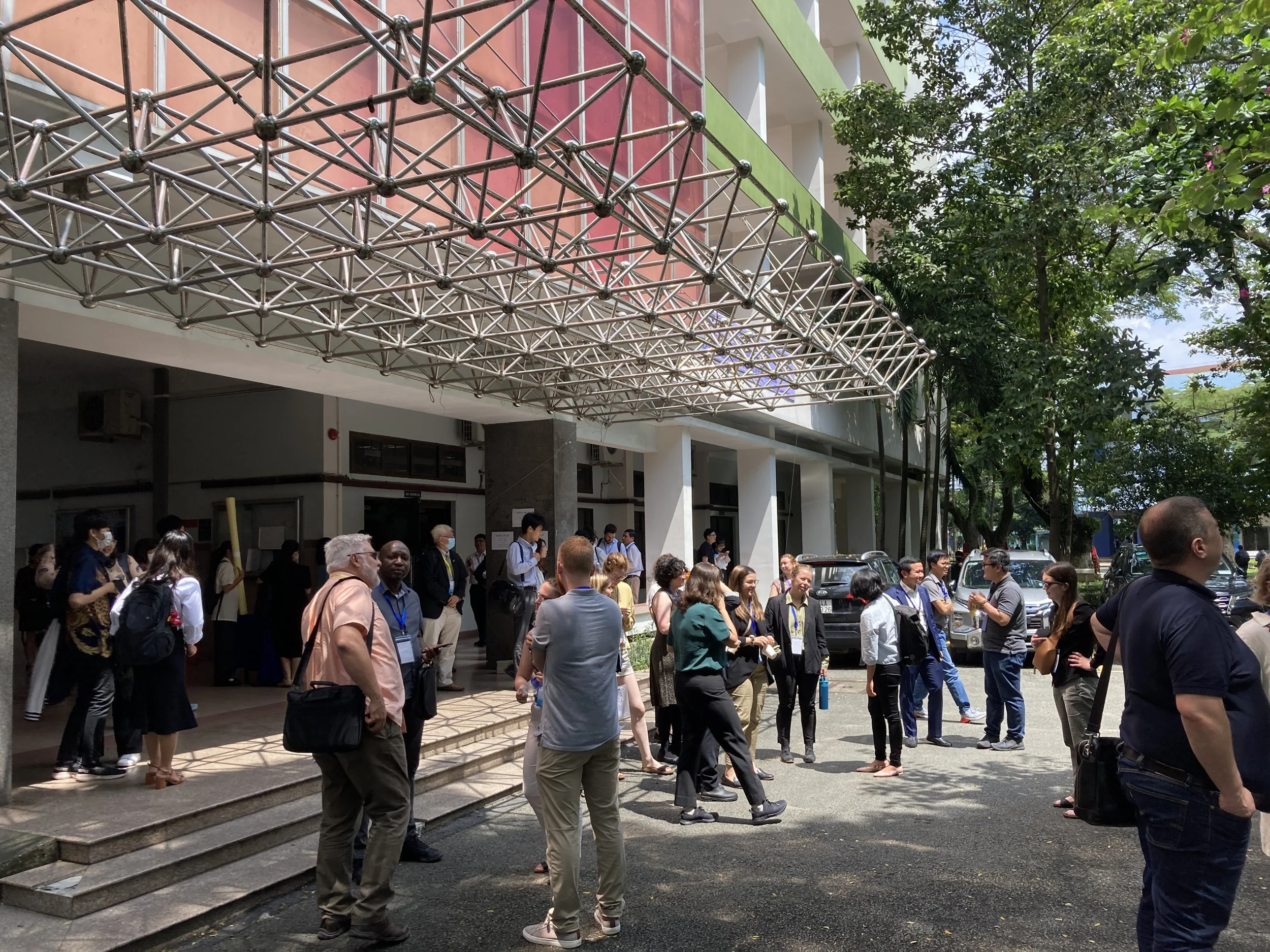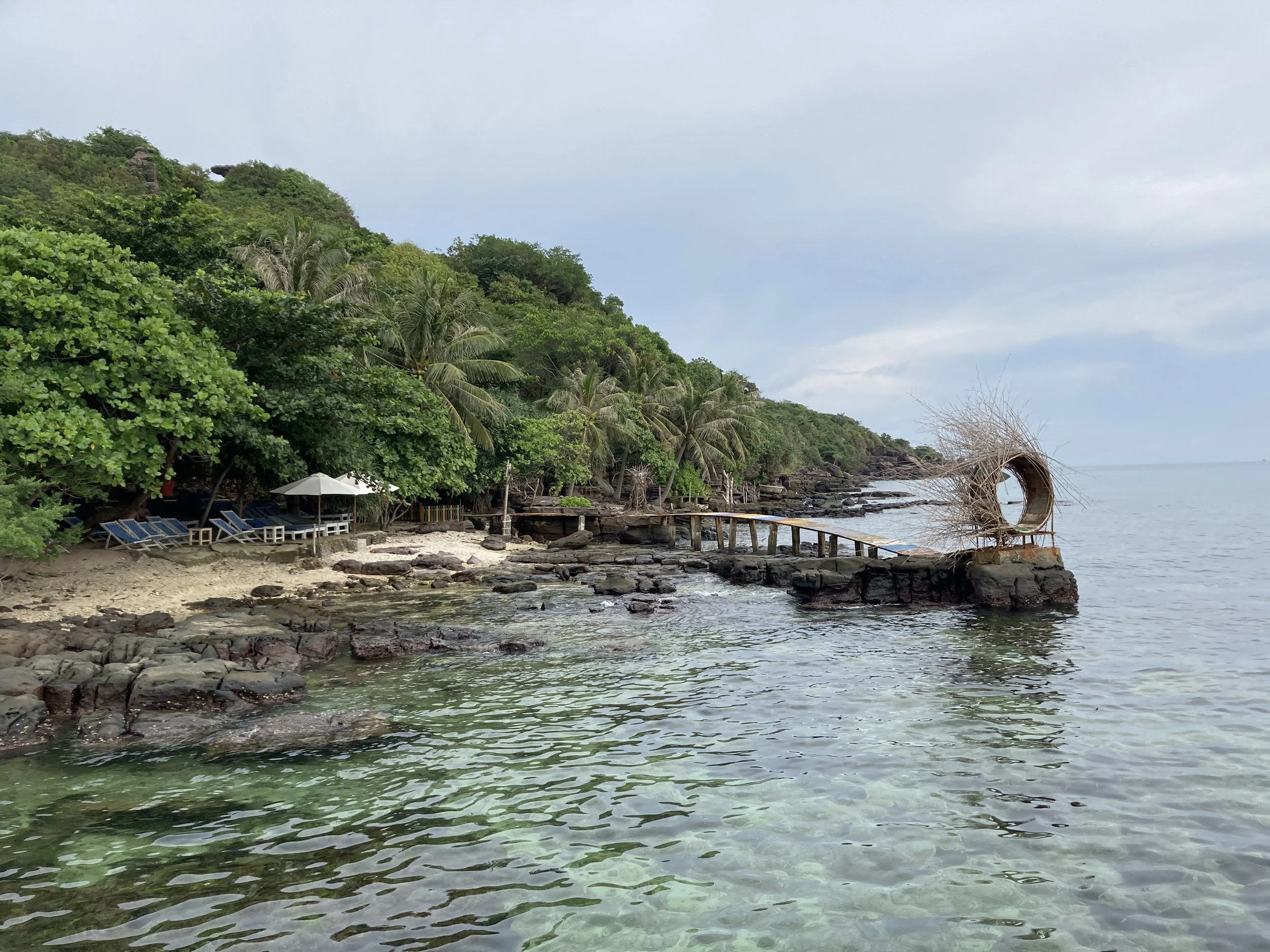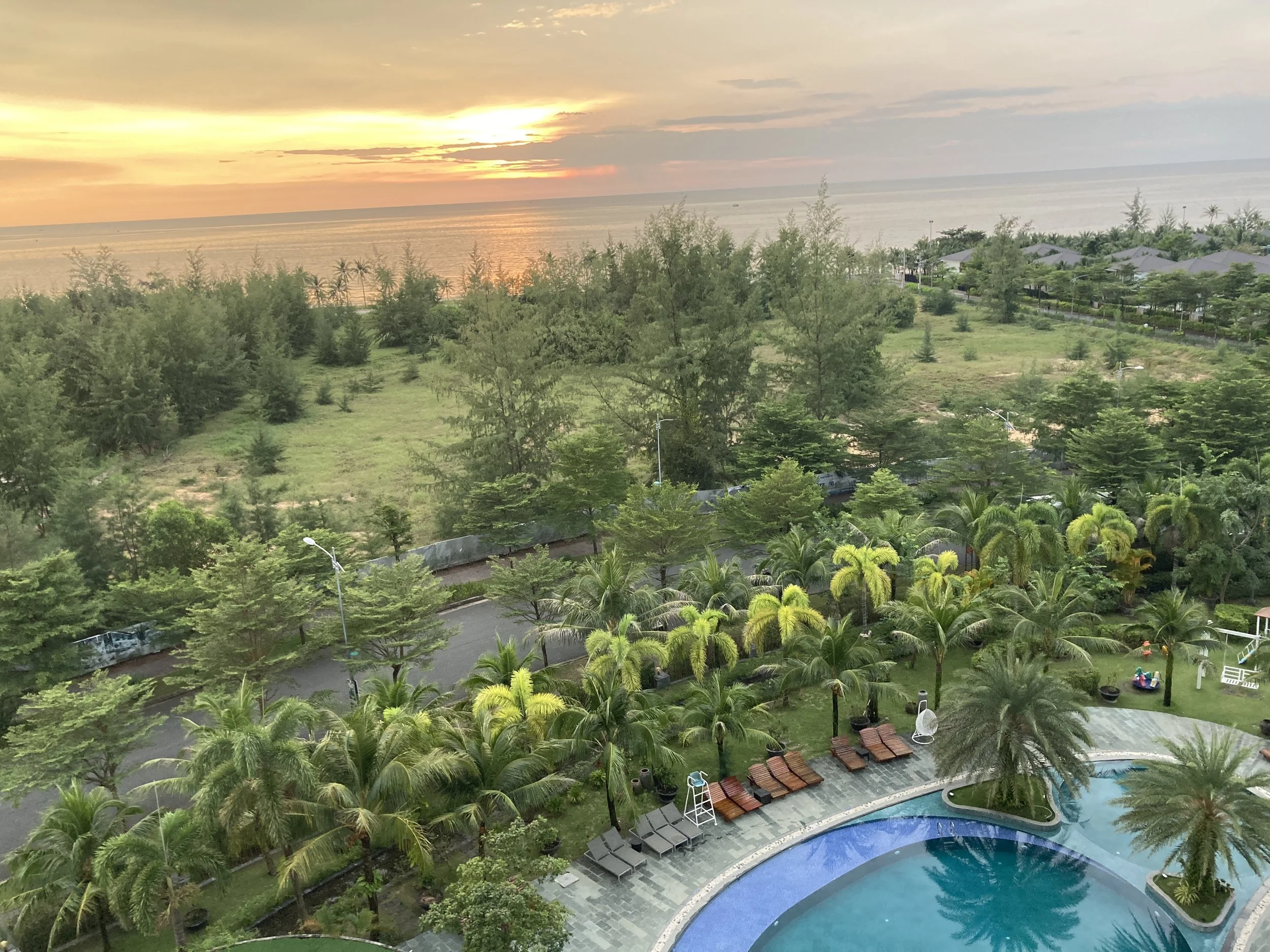The PowerGeolab brought the heat (hitting 40 ºC!) to Lyon, France, for Goldschmidt 2023! Kwon and Zivi presented their enhanced rock weathering research which included laboratory and field CO2 fluxes of pulverized wollastonite skarn applied to agricultural soils, carbon accounting of processed kimberlite spread at high dosages to local soil, and how both studies currently observe an uptake of respired CO2 in soil pore spaces. An insightful week showcasing the recent advances in carbon capture, storage, and removal. Thank you to the Goldschmidt hosts, organizers, and conveners for a great conference!
Enhanced weathering at the Trent Experimental Farm
This month lead researcher Heather, and assistants Chloe and Larissa, started working on their project at the Trent Experimental Farm to sequester tonnes of carbon dioxide (CO2) by amending the farm with wollastonite, a mineral powder provided by the Canadian Wollastonite in Kingston, Ontario. Thirty-three tonnes of wollastonite have been delivered, and initial CO2 fluxes have been recorded. Final preparations are underway for the application of wollastonite to the cultivated field. The team has successfully delineated 15 acres of field plots and collected over 1000 baseline soil samples. Soil samples are in the process of being analyzed for total inorganic carbon and mineralogical composition. Stay tuned for more updates!
New publication in Astrobiology!
Teanna, Carlos and Ian along with collaborators from Canada, China, Mexico and Türkiye published a study in Astrobiology that examined the environmental and mineralogical controls on biosignature preservation in magnesium carbonate systems analogous to Jezero Crater, Mar. Our article was featured on the cover of Astrobiology! This micrograph is of a microbialite composed of aragonite from the Mg-carbonate playas near Atlin, Canada, a terrestrial analogue for Jezero Crater, and shows the entombment of diatoms frustules and filamentous cyanobacteria. This study contributes to our knowledge of terrestrial analogues to Mars environments and may aid in prioritizing sample collect for later return missions to Earth.
Canadian Institute of Mining, Metallurgy and Petroleum Convention 2023
Zivi and Justin attended the Canadian Institute of Mining, Metallurgy and Petroleum Convention (CIM) in Montreal - Building trust to decarbonize the world. They presented research on how enhanced weathering and CO2 mineralization of mine wastes can be used to reduce net greenhouse gas emissions in the mining industry. Zivi showed off her experimental plots that she is using to measure CO2 removal rates through enhanced weathering of kimberlite residues, and Justin presented his work on accelerating brucite carbonation through organic-inorganic carbon cycling. Their presentations were very well received by academics and industry attendees alike. Great job representing the team!
American Chemical Society Spring Meeting
The PowerGeolab presented at the American Chemical Society - Crossroads of Chemistry in the Geochemistry for CO2 Capture, Conversion and Sequestration session. Kwon, Lance, Justin and myself shared our research on enhanced weathering of wollastonite, calcium oxide carbonation, and CO2 mineralization of brucite-bearing serpentinites. This research is exciting and at the forefront of geochemical carbon dioxide removal field. A great session and conference, very much appreciate the invitation to share our research. Proud of the team from the PowerGeolab at Trent University!
New publication in Applied Geochemistry
The Mount Keith Nickel Mine in Western Australia were Wilson et al. (2014) determine CO2 removal rates using quantitative X-ray diffraction and Paulo et al. (2023) confirmed these rates using geochemical modelling.
Carlos published his study entitled Geochemical modeling of CO2 sequestration in ultramafic mine wastes from Australia, Canada, and South Africa: Implications for carbon accounting and monitoring. In this study, we used existing mine site water chemistry and inverse geochemical modelling to determine CO2 removal rates at the Mount Keith nickel mine, and Diavik and Venetia diamond mines. This tool can be used to monitor CO2 removal throughout the mine’s life, including when different ores are mined. Furthermore, mining companies can make modifications to their tailings management practices and assess the impacts on CO2 removal.
Field pilot at Venetia
Carlos and Kwon went to the Venetia Diamond Mine in South Africa to conduct a large-scale enhanced weathering experiment, testing depositions of fine kimberlite residues to optimize carbon removal. They also conducted a CO2 flux survey on the fine residue impoundments to identify optimal conditions for carbon removal under current deposition practices. Excellent work team! This research is part of Project CarbonVault with the goal of reducing the net greenhouse gas emissions at De Beers’ mines.
New publication in PloS Biology
Written by Jenine McCutcheon at the University of Waterloo and Ian Power. The climate crisis and rising demand for critical minerals necessitate the development of novel carbon dioxide removal and ore processing technologies. Microbial processes can be harnessed to recover metals from and store carbon dioxide within mine tailings to transform the mining industry for a greener and more sustainable future.
Published in PLoS Biology.
AGU 2022
Kwon attended the American Geophysical Union (AGU) fall meeting online 2022, presenting our research on the potential and limitations of metal-oxide looping technology for carbon dioxide removal (CDR). There is an increasing research interest in CDR technologies, bringing multidisciplinary researchers to develop new technologies and overcome prohibiting fundamental and applied challenges in existing technologies. Exciting to see researchers trying creative ways to indirectly monitor and verify the fate of carbon in enhanced weathering from lab- and pilot-scale experiments.
7th Annual International Institute of Environmental Studies (IIES) Workshop in Vietnam
Ian attended the 7th Annual International Institute of Environmental Studies (IIES) Science and Policy Workshop in Ho Chi Minh City, Vietnam. He presented the PowerGeolab’s research on Mineral Weathering for CO2 Removal. A great experience, many interesting people, and very welcoming hosts in Vietnam. Thank you to the organizers. Following the workshop, the IIES Graduate Student Forum was held on Phú Quốc Island. We went snorkelling to explore the beautiful coral reefs. Thanks to all the energetic graduate students that make being a professor that much more fun!


